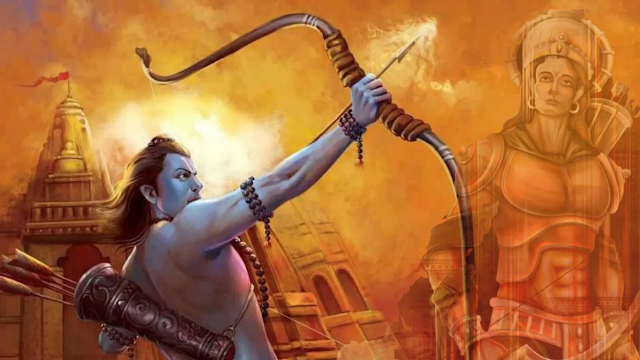Introduction -
Hinduism, a religion deeply rooted in spirituality, philosophy, and diverse cultural practices, finds its essence in a rich repository of sacred texts that have guided its followers for millennia. These texts, revered for their profound wisdom and spiritual insights, constitute the foundational pillars of Hindu thought and practice. Let us embark on an immersive journey through these sacred scriptures :
1. Vedas: The Divine Revelation
The Vedas, revered as the oldest scriptures, are the foundational texts of Hinduism. Comprising four primary collections - Rigveda, Samaveda, Yajurveda, and Atharvaveda - these texts primarily consist of hymns, rituals, prayers, and philosophical discussions. The Rigveda, the oldest among them, contains hymns dedicated to various deities, cosmic forces, and elucidates on the nature of existence and the universe.
2. Upanishads: The Essence of Spiritual Wisdom
Embedded within the Vedas, the Upanishads, also known as Vedanta, are philosophical treatises. These texts explore the deeper dimensions of existence, discussing metaphysical concepts such as the nature of reality (Brahman), the self (Atman), and the relationship between the individual soul and the universal consciousness. They emphasize the pursuit of self-realization and spiritual liberation through contemplation and meditation.
3. Ramayana: The Epic of Virtue and Dharma
Attributed to the sage Valmiki, the Ramayana narrates the life and adventures of Lord Rama, an embodiment of virtue and righteousness. This epic chronicles Rama's exile, the abduction of his wife Sita by the demon king Ravana, and his quest to rescue her. Through its narrative, the Ramayana exemplifies the ideals of dharma (duty), devotion, and the triumph of good over evil.
4. Mahabharata: The Epic of Cosmic Drama
The Mahabharata, the longest epic poem in the world, encapsulates diverse narratives, including the Bhagavad Gita. It narrates the story of the Kuru dynasty and the great war of Kurukshetra. The Bhagavad Gita, a sacred dialogue between Lord Krishna and Arjuna, discusses profound philosophical concepts, ethical dilemmas, and elucidates various paths to spiritual realization, emphasizing the importance of righteous action.
5. Bhagavad Gita: The Song of Divine Revelation
A gem within the Mahabharata, the Bhagavad Gita serves as a spiritual guide. It expounds upon various paths of yoga, including Karma Yoga (the path of selfless action), Bhakti Yoga (the path of devotion), Jnana Yoga (the path of knowledge), and Raja Yoga (the path of meditation). Through dialogue, it offers insights into the nature of existence, the purpose of life, and the attainment of spiritual liberation.
6. Puranas: The Mythological Chronicles
The Puranas encompass a vast collection of mythological stories, cosmological theories, and the exploits of gods, goddesses, and heroes. These texts impart moral teachings, describe religious rituals, and offer a cultural backdrop to Hindu traditions. The eighteen major Puranas cover a wide array of subjects, including cosmology, cosmogony, and ethical guidelines.
7. Manusmriti: The Code of Conduct
Attributed to the sage Manu, the Manusmriti lays down societal and ethical codes governing human conduct. It discusses principles, laws, and guidelines for personal conduct, social order, and ethical responsibilities. While it reflects the social norms of ancient India, it also emphasizes the importance of dharma and righteous living.
8. Vedangas and Upavedas: The Ancillary Texts
Apart from the primary scriptures, Hinduism also recognizes Vedangas (limbs of the Vedas) and Upavedas (secondary Vedas). Vedangas consist of six disciplines - Shiksha (phonetics), Kalpa (rituals), Vyakarana (grammar), Nirukta (etymology), Chandas (metrics), and Jyotisha (astronomy). Upavedas, such as Ayurveda (science of health), Dhanurveda (science of warfare), Gandharvaveda (arts and aesthetics), and Arthashastra (science of politics and economics), delve into specialized knowledge.
The depth and breadth of Hindu sacred texts encompass profound philosophical insights, moral teachings, ritualistic practices, and a treasure trove of wisdom that continues to inspire millions worldwide. These scriptures serve as guiding lights, nurturing spiritual evolution and ethical living, while providing a profound understanding of the universe and the human journey.
In conclusion, the Hindu sacred texts stand as eternal reservoirs of knowledge, guiding humanity towards spiritual fulfillment, ethical conduct, and a deeper comprehension of life's mysteries. This comprehensive overview highlights the significance and diversity of Hindu sacred texts, encompassing a wide range of spiritual, philosophical, and cultural dimensions.
if you think this article has added to your knowledge then please follow us on our socials, or add a comment or if you have something to say to us directly then you can do so via contact form.








